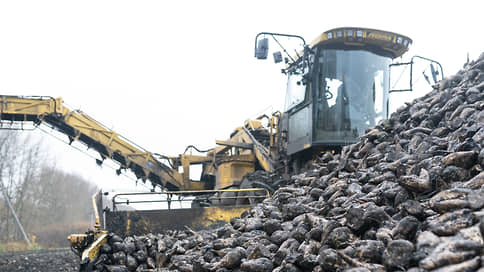Leasing is based on special equipment – Newspaper Kommersant No. 175 (7376) of 09/22/2022
[ad_1]

At the end of 2022, the leasing market will show a significant drop in indicators, even despite its partial recovery in the second half of the year. The volume of new business can be reduced by 30%, and the number of leased objects transferred by 60%. However, a number of the largest Russian market participants can count on business growth against the background of the demand for equipment for the development of infrastructure projects. At the same time, the share of leasing companies from unfriendly countries will decrease.
According to NRA forecasts, which Kommersant got acquainted with, the leasing market will show a significant decline at the end of the year even if the economic situation stabilizes. In the baseline scenario, the number of leased items transferred to lessees in 2022 will decrease by 40%. In the optimistic scenario, which assumes a revival of investment activity, the number of leased objects transferred will decrease by 30%. In the pessimistic scenario, against the backdrop of growing risks in the economy, the number of leased items transferred per year may fall by 50-60%. At the same time, the volume of the leasing portfolio may grow by the end of 2022, but only by 1–3%. The volume of new business in the base scenario will decrease by 30% and amount to about 1.6 trillion rubles, the agency’s experts expect.
They do not expect the market to grow by the end of the year in the NKR either. The market will return to positive growth rates in the third or fourth quarters, but this is unlikely to make up for the failure of the first half of the year, Mikhail Doronkin, managing director of the rating agency, believes. In his opinion, the market will continue to be affected by foreign sanctions and a shortage of certain types of leasing, in addition, Russian companies have reduced investment activity, and its noticeable recovery cannot be expected before 2023.
However, the general dynamics does not mean that all companies will go into the red. For example, according to the published data of Expert RA (see Kommersant dated September 13), Gazprombank Leasing and VTB Leasing, which occupy the first lines, showed an increase in new business volumes by 72% and 48%, respectively, in the first half of the year. The same indicator of LK “Evolution” increased 2.5 times (up to 16.5 billion rubles), Rosagroleasing – two times (up to 24.8 billion rubles). According to Anatoly Perfiliev, Junior Director for Banking Ratings at Expert RA, these are “large capital-intensive players with administrative resources, as well as companies that have managed to reorient themselves to new niches.” “The growth is associated with the presence of large infrastructure, road, construction projects with our clients, as well as an increase in transactions for used equipment and special equipment,” says Maxim Kalinkin, CEO of Gazprombank Leasing. In the second half of the year, according to him, the market will receive support from the railway segment and special equipment. “The Russian economy is faced with a gigantic amount of infrastructural tasks that require new machinery and equipment. Great potential is expected in the segments of oil and gas equipment, commercial vehicles and special equipment,” says Sergey Klyushnikov, CEO of VTB Leasing.
At the same time, captive leasing companies of foreign banks and manufacturers of goods showed a drop in the volume of new business by more than four times. Among the outsiders in terms of new business volumes were Siemens Finance, Unicredit Leasing, DLL Leasing, Komatsu BOTL Finance CIS and others. Kommersant’s interlocutors explain the trend by the fact that after February 24, foreign companies stopped entering into new contracts, they worked only with former clients or under long-term contracts. The companies themselves did not respond to Kommersant’s request. In connection with the curtailment of Russian business by foreign manufacturers, they no longer need to maintain leasing companies in the structure, Anatoly Perfilyev notes.
In addition, staying in Russia, such companies bear great risks, and the Russian market does not occupy a large share in their sales volumes. “For foreign companies that are required to comply with foreign sanctions, the supply of goods subject to export control will be a violation of the sanctions regime. Often, leasing objects are complex and consist of various components that are themselves subject to prohibitions, ”explains Kira Vinokurova, Special Counsel for Sanctions at Pen & Paper Bar Association. “It is unlikely that these companies will work through the parallel import system, since it will be easier for them to nullify the new business and try to get out of it either by selling to management or by selling to structures affiliated with friendly countries,” summed up Sergey Grishunin, managing director of the NRA rating service.
[ad_2]
Source link





